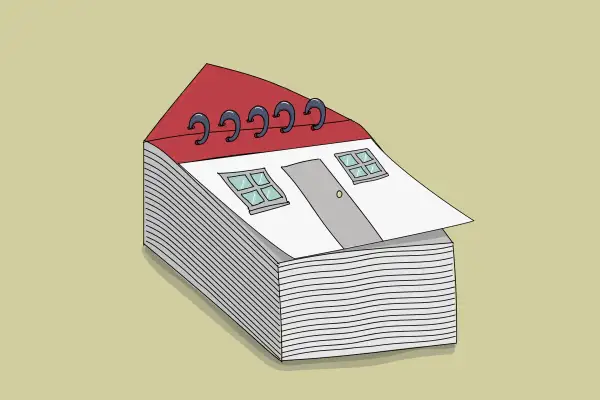A Housing Economist Did the Math on How Long It Takes to Save for a Down Payment — and It's Not Pretty

Saving up a down payment for a home takes 10 months longer today than it did before the pandemic.
Skylar Olsen, principal economist for home buying startup Tomo, found that in August it would take a first-time homebuyer about seven years and 11 months to save a 20% down payment on a median priced home. Back in January 2020, the same buyer would have been able to reach their 20% goal in about seven years and one month.
Going back further, in June of 2001, the average homebuyer needed six years and one month of aggressive saving to accumulate a 20% down payment at the prevailing income and home values.
"For those that have to save money the long, hard way out of their finely-tuned monthly budget, down payment affordability has eroded faster than at any other time in history. As part of this, one of the most upsetting realities for millennials, brought into even starker relief during the pandemic, is how much harder major milestones will be for younger generations," says Olsen.
Adding, "The years-to-save, the total amount of time it takes to save 20% down with 10% of local median household income, continues to increase — making the dream of homeownership less attainable for more and more people.”
Of course, homebuyers can put less than 20% down and some will be able to save more. Here's what you need took about the levers you can pull.
Wages are up — but home prices are up more
Why is it taking so much longer to save? The culprit is home price growth outpacing wage growth.
In January 2020, the median home value was $247,937, according to Olsen’s blended home value index, which averages data from the Federal Housing Finance Agency and Zillow. However, the buying frenzy that took place as mortgage rates plunged led to an 18% surge in home values. By August of this year, the median value was up to $293,365, increasing the amount needed for a 20% down payment by more than $9,000.
Median incomes have also been increasing, but not as quickly. Back in January 2020, the median household income was $69,848. By August of this year, median incomes had increased to $74,067 — just a 6% increase.
How does your savings rate impact how long you need to save for a down payment?
Olsen’s model assumes prospective homebuyers are saving 10% of their income toward a down payment, which she admits is “aggressive.” If you can only save 5% of your monthly income but still want to accumulate a 20% down payment, it would take you approximately 15 years and nine months to save for a median priced home today.
Achieving such a high rate may have been more common last April, when Americans were able to save an all-time high of 33.8% of their monthly income due to pandemic lockdowns and government assistance checks. Since then, the personal savings rate has come back down to earth.
In September of this year, the average savings rate in the U.S. was 7.5%, according to the Bureau of Economic Analysis— equal to the savings rate for the 10 year period prior to the pandemic. And those savings are likely to be split among different savings goals, not just for a down payment, says Olsen.
“That would include emergency savings, or retirement savings or college for your kids,” Olsen notes. Although people who are actively saving up for a home purchase are likely to make it a priority.
You don't need to put 20% down
While putting down 20% is a great way to start out with meaningful equity in your home — and to avoid pricey mortgage insurance that only protects the lender — it is not required. In fact, for first-time homebuyers, the average down payment was 7% last year, according to the National Association of Realtors.
Putting less down can make a big difference in how long it takes to save. If you opted to put 10% down on a median priced home today, with a 10% savings rate it would take about 4 years to reach your goal.
Moreover, FHA loans, for example, can be obtained with as little as 3% down. If you can set aside 5% of your income towards the purchase of a home, it will take about two years and four months to save for this low of a down payment. If you can set aside 2.5%, it will take around four years and eight months.
More from Money:
4 Signs the Hot Housing Market Is Finally Starting to Cool
5 Myths That Cost New Homeowners Time and Money
Don't Have 20% for a Down Payment? Here's How to Buy a Home With Less
